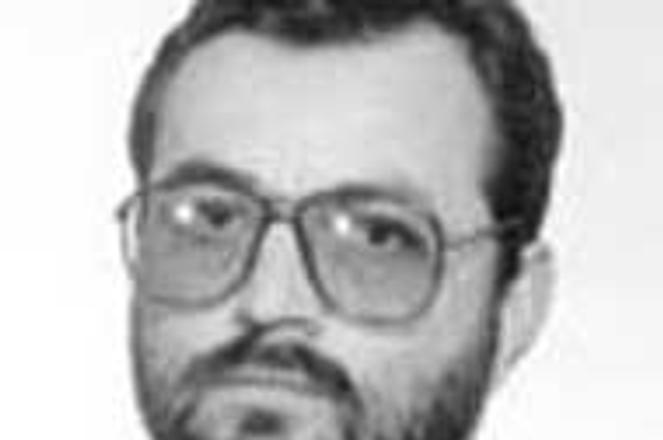The Foreign Ministry's Jaroslav Chlebo.photo: Courtesy of the Foreign Ministry
The winds of change that swept through Slovakia after September 1998 parliamentary elections returned to state posts many people who had been banished by the previous government of Prime Minister Vladimír Mečiar. Among those returning to old haunts was a career diplomat by the name of Jaroslav Chlebo, one of the two new state secretaries at the Foreign Ministry.
Chlebo was trained as a lawyer and holds a Master's Degree in International Law. His professional diplomatic career started in 1986 at the Czechoslovak Foreign Ministry in Prague and continued in New Delhi, where Chlebo was chargé d'affaires. Following his india posting, Chlebo worked as the director of the Press Department at the Foreign Ministry. He left diplomacy in 1994, only to return four years later as state secretary, the second most important chair at the Foreign Ministry.
The Slovak Spectator had a chance to interview him on January 13 about Slovakia's NATO ambitions.
The Slovak Spectator (TSS): Yesterday, a group of 11 American congressman came to visit Slovakia. They praised Slovakia's efforts to enter Euro-Atlantic structures. However, they were rather vague about the conditions and timetable for NATO entry. How important was their visit for Slovakia?
Jaroslav Chlebo (J.CH): It sends a very powerful message to the outside world, and it's a reflection of the attitude of the American administration and the congress towards Slovakia after the last parliamentary elections. Concerning the meeting of the NATO criteria, it must be said that most of them have already been fulfilled, and to some degree I see the visit of the congressmen as a conclusion of the first stage of the renewed dialogue between NATO and Slovakia.
TSS: You said that almost all conditions have been fulfilled, but it seems as if the bar for admission keeps getting raised, if you compare the criteria requested during the Mečiar government and the criteria which have been set for the new cabinet.
J.CH.: That's a point for discussion. But one has to understand that if we abused the trust of our partner at one time, he could lose trust in our country forever. We cannot regain trust immediately. And this is a mistake we make about the outside world and especially about those people who are deciding what Slovakia has already accomplished on the way to joining transatlantic organisations. Things are not changing so dramatically, which is logical, because we cannot expect that American politicians will change their opinions from day to day. That's why I can't agree with you that the bar has risen so high.
TSS: So, what exact doubts remain about Slovakia?
J.CH.: First of all, the democratic trends that began with the instalment of the new government must be shown to have a long term character. Secondly, the ruling coalition must achieve political stability and the internal problems of domestic politics should be solved. Everything that happens here is viewed differently from the outside, so the people there must be absolutely sure that whatever steps we take are right and beyond reproach.
TSS: You mentioned the issue of trust. Back in 1997, there was a Slovak diplomat in Switzerland who passed some NATO secrets to the Russians. This event certainly lowered the trust of NATO in Slovakia. How do you plan to win it back? How can you ensure your partners that Slovakia will keep NATO secrets?
J.CH.: I don't know this case in detail, but from my personal talks with NATO officials, I can say that we are expected to fulfill very tough requirements here. We can't be invited to NATO talks while not already applying the standards that are applicable to all the alliance countries - there's no way to get around this. It's not just a question of our will or approach, but it's something that has been very strongly and simply explained by our partners. And if trust is not strongly rooted among our friends, we definitely won't be invited to NATO talks.
TSS: Again on the subject of trust, the current government has made a priority out of gettiing Slovakia into NATO and the EU. This foreign policy success, if it came, might be enough to balance people's frustration with the economic hardship they will have to endure over the next four years. But it looks increasingly likely that Slovakia won't be admitted to either alliance anytime soon. How will you explain that to ordinary people?
J.CH.: It should be understood that the accession process is not a race. That's the first thing. Another fact is that the entry process goes together with an internal restructuring process [within NATO and the EU], which is still not over. So this is also one of the factors that can slow down the accession process. As far as the political aspect of achieving this goal within the tenure of this government, it is a complex issue and should be tackled seriously. One of the most important things here is to make sure that people are very well informed about the issues. If I were absolutely, transparently informed about the problems, requirements, complications and other aspects of the accession process, I would definitely be realistic about the possible achievements of this government.
TSS: Entering NATO and the need to build trust connected with that aim must be creating pressure at the Foreign Ministry to get rid of the old, Moscow-trained diplomatic guard. Are you cleaning house somewhat these days?
J.CH.: I would like to make my position absolutely clear. I'm of a different opinion. We should give a chance to people trained here in Slovakia.

